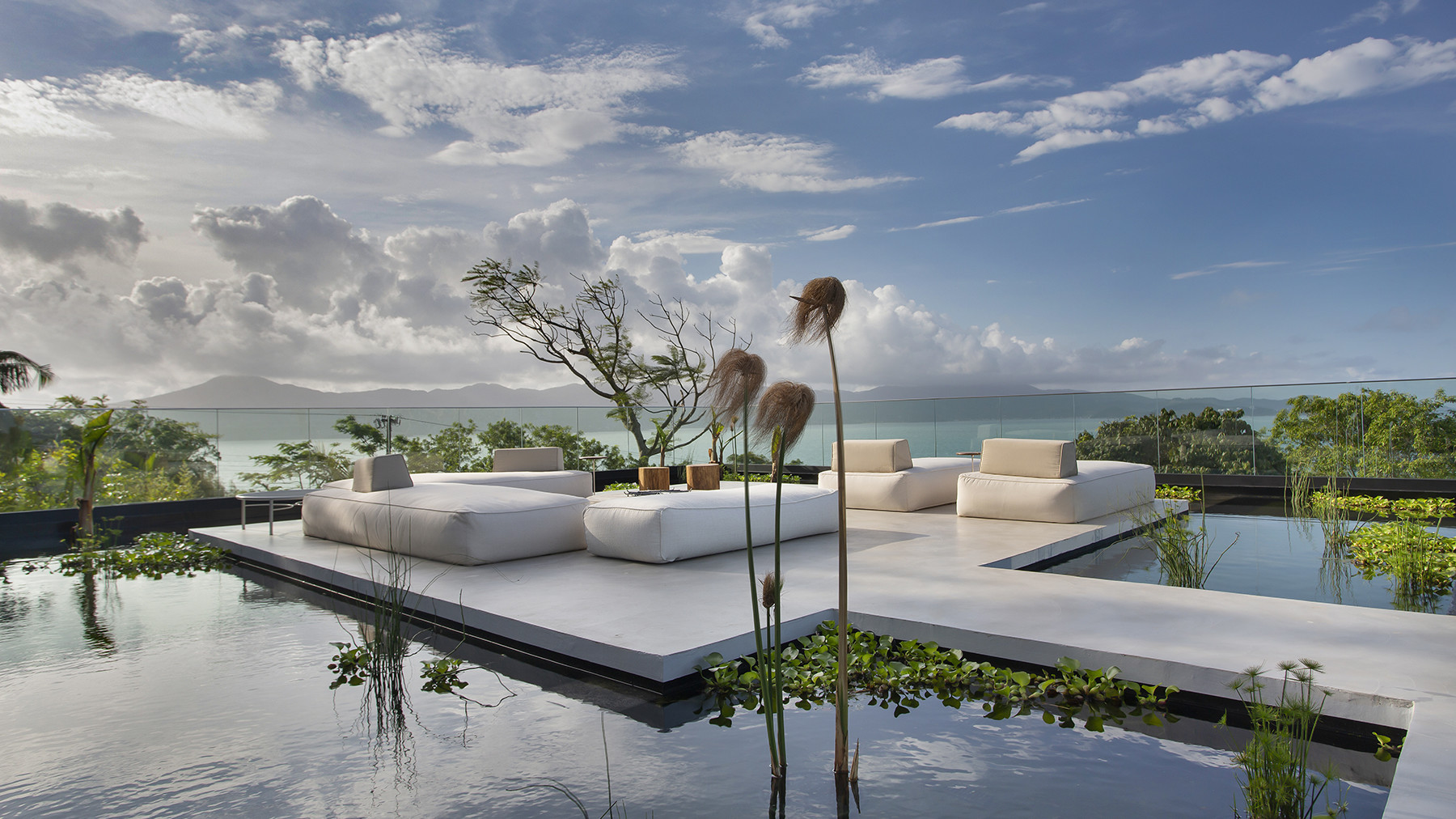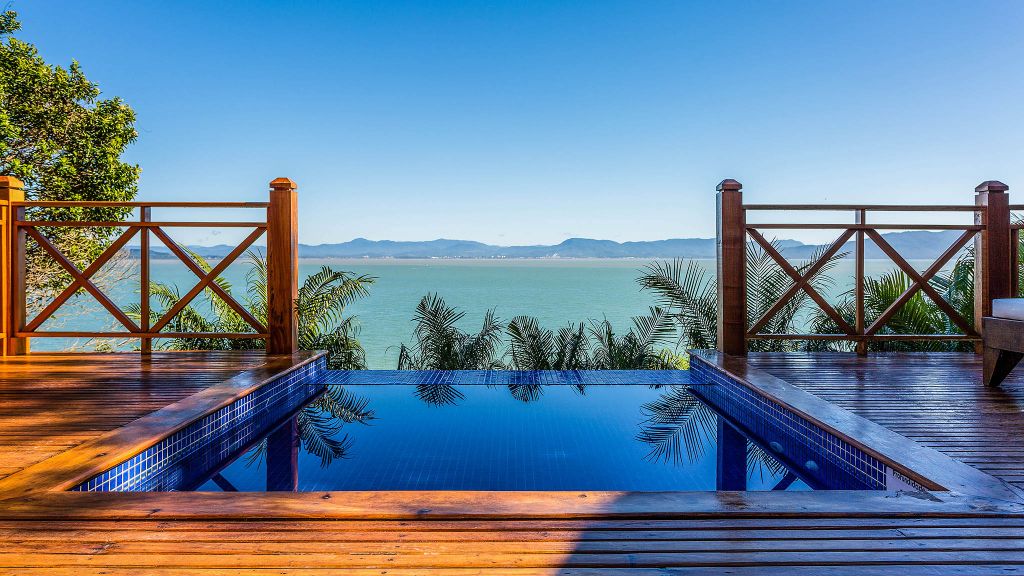RIO DE JANEIRO, BRAZIL – Hotels with few suites, signature dishes, 24-hour customer service, tours and private travel. Luxury tourism already combined features naturally opposed to the concept of crowds. In addition to this equation, closed borders for international travel by Brazilians and reinforced health safety protocols in the segment. The result: high end travel is on the rise in Brazil.

“The restrictions on traveling abroad triggered an opportunity for Brazil: why not offer here what many Brazilians were looking for exclusively abroad? Luxury and post-luxury services, with a strong link between charm, design, gastronomy, nature and sustainability, have guaranteed clients among Brazilians who used to find this in South Africa, in Provence, in Patagonia, and left millions of dollars there,” says Jaqueline Gil, researcher of the Tourism and Sustainability Studies Laboratory of the University of Brasília (Lets/UNB) and founder of Amplia Mundo, a consulting company specialized in innovation and planning of future scenarios in tourism and hospitality.
In Florianópolis, the demand for luxury tourism is very high, but the supply is very restricted, according to Eduarda Tonietto, architect and creative director of Milano Incorporated, owner of the Fuso Concept Hotel, opened in December in Jurerê International. “In addition, the hotel resulted from the desire to create a product with a more relaxed atmosphere and without the formality that the luxury market is used to offering. And to communicate with the public whose lifestyle is a search for unforgettable moments, who appreciates good design, Brazilian artists, a connection with nature, flawless service, and exclusivity,” he explains.
“These tourists travel abroad to look for this type of hotel. Our purpose is to have a national option with easy access, just an hour flight from São Paulo.” Fuso’s rates start at R$1,900 (with coffee, for a couple).
This is also the style of Six Senses, which has just reached Brazil. The Botanique, located in the heart of the Mantiqueira Mountains in the Campos do Jordão region of São Paulo state, began to be managed by the chain in February. Gastronomy and spa have been redesigned by the international brand.
“Since our first hotel in the Maldives, we believe that the essence of luxury lies in unique and extraordinary experiences, deep for reconnecting with ourselves, others, and the world around us,” says Dominic Scoles, general manager of the hotel, with rates for two starting at R$2,277 with coffee. “We are very much in line with Botanique’s post-luxury concept. I believe that after the pandemic people will choose wisely how to spend their valuable time and money. There seems to be a global awakening and we are sure that Brazil is a big part of that.”
On a peninsula on the coast of Santa Catarina, the Ponta dos Ganchos Exclusive Resort features only 25 bungalows and activities such as hiking trails, stand up paddle and kayaking available to guests.
“At Ponta dos Ganchos the focus has always been on providing not only beautiful facilities but also a very high standard of personalized service. Our guests have a more demanding profile, and we strive to exceed expectations. As a member of the select The Leading Hotels of the World, we always refine standards of care, quality, and service, earning national and international recognition, and most importantly, that of our guests,” says Fernanda Makhou, the hotel’s Director of Sales and Marketing.
The bungalows feature private decks with ocean views; rates start at R$2,800 (until April, except on national holidays). The daily rates include a ten-course breakfast.
Gastronomy is also one of the points in permanent improvement at the Tangará Palace, in São Paulo. With plant-based options, a new menu has just been launched at Tangará Jean-Georges, under the supervision and cooperation of French chef Jean-Georges and chef Felipe Rodrigues, locally responsible for the restaurant. A member of the Oetker Collection, the hotel has been recording an increase in reservations since September, when it reopened after being closed for six months.
“We are up 12% in January 2021 compared to January 2020, and the hotel’s average occupancy through December 31st was 51%. The domestic market has never been this strong, particularly among guests from the state of São Paulo, looking for a place to relax, with quality and safety,” says Celso David do Valle, Tangará’s general manager.
Guests’ experience becomes even more important to attract and retain the loyalty of the Brazilian traveler who was looking for luxury tourism abroad. “The quality of facilities and services of luxury hotels in Brazil are very important to attract Brazilians who were more used to traveling abroad. Fortunately, Brazil has beautiful hotels with great service, which can be experienced by Brazilian travelers,” says Antonio Mazzafera, CEO of Fera Hotels. With coffee, the daily rate for two people ranges from R$925 to R$2.881 at the Fera Palace Hotel, in Salvador.

New Brazilian guests
At the traditional Belmond Copacabana Palace, in Rio, occupancy and the number of bookings made by new guests have increased: “We can say that occupancy has grown considerably, particularly in the months of December and January. We observed an increase of 21.94% in new guests, which is considered extremely relevant for Copa, a hotel with many regular clients. In this same period, we counted a total of 1,399 new guests,” says Ulisses Marreiros, general manager of Copacabana Palace.
The hotel developed products to meet the Brazilian clientele, such as Staycation (lodging in the city itself) and Stay a Little Longer (extra daily rate for three-night reservations). “Exclusive Places offers the hotel’s sixth floor, the most desired floor, entirely for the guest and his family, an exclusive and personalized experience.”
The Copacabana Palace is part of the Brazilian Luxury Travel Association (BLTA), a luxury tourism association in Brazil whose members posted an average occupancy of 70% in December and January. “The domestic market has obviously warmed up with travelers who stayed in Brazil. There was this pent-up demand that boosted occupancy, particularly in BLTA resorts. Many are in remote areas, and we don’t have large hotels like resorts,” explains Simone Scorsato, CEO of the Brazilian Luxury Travel Association (BLTA).
A recent survey by the association pointed out that most members fit the trend of isolation tourism, with travelers staying less often but for a number of stays per trip. In addition to hotels, companies that sell complete tour itineraries also take part in BLTA.
“The associated operators today have a safe package for the domestic market with experiences, but also a product of villas, houses with a service combo, to travel with people from one’s own family circle or friends.”
Despite the optimistic moment for the high-end segment, Simone points out that the situation is very unstable because of the pandemic, the lack of vaccination and the political and economic instability in Brazil.
“But I have no doubt about how much Brazil has been rediscovered by Brazilians in this reset moment with the pandemic. Lençóis Maranhenses and the Amazon itself are destinations that Brazilians were unaware of.”
Discovering the country in the pandemic
Carol Razuk used to travel abroad before covid-19. “One has this look, at least I did, outward. I don’t know if it’s in our history not to value our culture. With the pandemic, I stayed home and had a chance to reconnect with my parents. Likewise, it was a chance to appreciate the things that Brazil has to offer.”
In 2020, she traveled with her mother to the Serra Gaúcha mountains and with her brother to the Amazon. “My experience in the Amazon was very good, everything was impeccable,” says Carol, who stayed at Lodge Mirante do Gavião, a jungle hotel with packages starting at R$2,871 per person (transfers, one night’s accommodation, tours and meals).
“I found it very inspiring, I would spend more time there. I enjoyed meeting the people who live there. It’s an eye opener to a reality that maybe we ignore,” she believes.
With a degree in Visual Arts, she brought back masks made of pirarucu fish scales and a dream catcher. “Travel is important, also for my work. I collect lots of information and resources,” she says.
Carol works in high-end jewelry design and is thinking about a future collection inspired by this experience. “I don’t want to make something with the material or symbols of the fauna there. To have a true meaning, I wanted to make something in return for the community,” she says.
Agencies invest in luxury products
The new scenario aroused the interest of even CVC giant. “To meet this demand, we created the Travel Boutique in the CVC Corp brands, which began to offer itineraries in luxury hotels in the country, with exclusive services and experiences in several national destinations,” says Nathalia Pacheco, the group’s Product Planning and Strategy manager.
“This is also a trend that should continue strong throughout this year. With fewer guests per hotel, service customization has become more important than ever.”
Emiliano, Fasano, and Nannai are some of the names in the luxury segment, featured on the page in links from the CVC and Submarino Viagens websites. “In addition to services that are already in the portfolio, such as rental of luxury, armored and electric cars, this year there will be the launch of new products in Travel Boutique, such as speedboats and private catamarans,” he says.
The Brazilian Association of Travel Agencies (ABAV) established the Luxury Tourism Working Group in late 2020, in order to improve and strengthen the performance of its members in this niche.
“We will qualify the national and international luxury market. The plan is to join agencies that fit this luxury niche, mapping these associates to bring suppliers, hotels, airlines, all links in the chain,” explains Frederico Levy, ABAV National Luxury segment director, with 25 members from different regions in the country.

